Scientific Advisory Boards
DIABETES
Arecor’s Global Diabetes Scientific Advisory Board supports the scientific, pre-clinical and clinical development of the Company’s novel proprietary insulin formulations. It brings together three world-renowned scientists and endocrinologists from the US and EU with extensive expertise in the field of diabetes and related conditions.
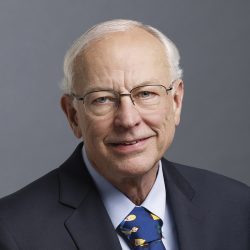
Bruce Buckingham, MD
Dr. Bruce Buckingham has served as a member of our Scientific Advisory Board since September 2017. He is Professor of Paediatrics (Endocrinology) at the Lucile Salter Packard Children’s Hospital, Stanford University School of Medicine
Dr. Buckingham’s major interest is in type 1 diabetes mellitus, continuous glucose sensor, and the development of an artificial pancreas.
His other research interests include using continuous glucose monitoring and algorithms to control blood glucose levels in intensive care units. He is currently working on the clinical trial: Accelerometer Use in the Prevention of Exercise-Associated Hypoglycemia in Type 1 Diabetes.
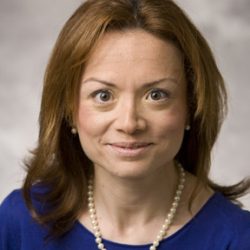
Eda Cengiz, MD MHS FAAP
Dr. Eda Cengiz has served as a member of our Scientific Advisory Board since September 2017. She is Professor of Pediatrics at the University of California, San Francisco and Director of the Cross-bay Pediatric Diabetes Program
For over 14 years, Dr Cengiz was a faculty member with Yale Diabetes Research Group and has conducted diabetes related clinical studies focusing on methods to accelerate insulin action, diabetes technology, and closed-loop systems. She was Director of Yale’s Insulin Pharmacokinetics and Pharmacodynamics (PK-PD) Research Study Center and one of the founding Investigators of the pediatric diabetes registry and type 1 diabetes exchange registry.
Dr. Cengiz’s prospectively designed clinical study (Early Cardiovascular Disease Markers for Children with Type 1 Diabetes (Jerusalem, Israel) (2009-2012), investigates signs of early cardiovascular disease in children with type 1 diabetes in the US and in Israel.
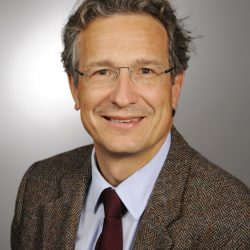
Thomas R. Pieber, MD
Dr. Thomas Pieber has served as a member of our Scientific Advisory Board since September 2017. He is a clinical specialist in endocrinology and diabetes mellitus, whose research is dedicated to the relationship of inflammation, energy homeostasis and human diseases
His group has developed a novel technique called open-flow microperfusion (OFM) which is used to explore energy metabolism in adipose and muscle tissue in diabetes.
Recently Dr. Pieber’s research has also addressed the role of 15-hydroxy-vitamin D in immune tolerance and autoimmunity. In a joint research effort with leading obesity centres in Europe, his group currently addresses the role of immune competent cells and novel pathways of chronic inflammation in obesity and diabetes. Dr. Pieber is Chairman of the Division of Endocrinology and Metabolism at the Medical University of Graz.
ORAL DRUG DELIVERY
Arecor’s Oral Drug Delivery Scientific Advisory Board of internationally recognised experts in the field of oral drug delivery provides key technical and strategic guidance as Arecor leverages its significant formulation and product development expertise to develop a game-changing novel technology platform for the oral delivery of peptides.
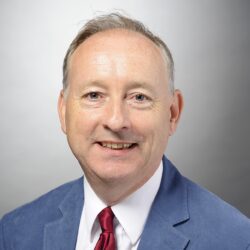
David Brayden, PhD
Dr David Brayden is a Full Professor of Advanced Drug Delivery at the School of Veterinary Medicine, University College Dublin (UCD) and a Senior Fellow of the UCD Conway Institute
His research focuses on oral peptide delivery and nanomedicines, with over 300 research publications and 12 patents in these areas. He is an elected Fellow of both the Controlled Release Society, the American Association of Pharmaceutical Scientists, and is an elected member of the Royal Irish Academy. Dr. Brayden is co-lead PI on the Research Ireland Centre for Medical Devices (CURAM) and current coordinator of BUCCAL-PEP, an EU Horizon Europe grant on buccal administration of peptides. He serves as Chief Editor of “Frontiers in Drug Delivery” and was appointed by Ireland’s Minister of Health as Chairperson to the National Research Ethics Committees on Clinical Trials (D). Dr. Brayden obtained his PhD from the University of Cambridge, followed by a postdoctoral fellowship at Stanford University, CA, USA, before spending 10 years at Elan Biotechnology Research.
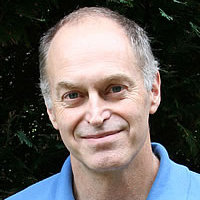
Randy Mrsny
Dr Randy Mrsny is Professor of Drug Delivery at the University of Bath, where his research examines mechanisms controlling trans-epithelial migration and tight junction regulation, as well as the fate of biopharmaceuticals in subcutaneous and intramuscular spaces
He was the Founder and Chief Scientific Officer of Applied Molecular Transport (now Cyclo Therapeutics), which directed the advancement of technology utilising endogenous pathways for efficient epithelial transcytosis. His career includes leadership roles at ALZA Corporation, Genentech, and as founder of Trinity BioSystems and Unity Pharmaceuticals. Dr Mrsny has served as President of the Controlled Release Society, been selected to its College of Fellows, and received its Founders Award. He was selected for the Medicine Maker 100 power list in 2015 and 2016. Dr. Mrsny has a BSc in Biochemistry and Biophysics from the University of California and a PhD in Human Anatomy and Cell Biology from the UCD School of Medicine.

Christopher Porter, PhD
Dr Christopher Porter is Director of the Monash Institute of Pharmaceutical Sciences (MIPS) at Monash University, with research focused on the absorption distribution and elimination profiles of drugs, as well as developing novel formulation approaches to optimise these profiles
He has published over 270 peer reviewed papers, his research programmes have attracted over $35m in funding, and is an inventor on more than 15 separate patent families. He is a Clarivate Analytics highly cited researcher, a fellow of the American Association of Pharmaceutical Scientists and an Editorial Board member for Molecular Pharmaceutics, Pharmaceutical Research and the Journal of Pharmaceutical Sciences. Dr. Porter obtained his BPharm and PhD in Pharmaceutics from the University of Nottingham.
